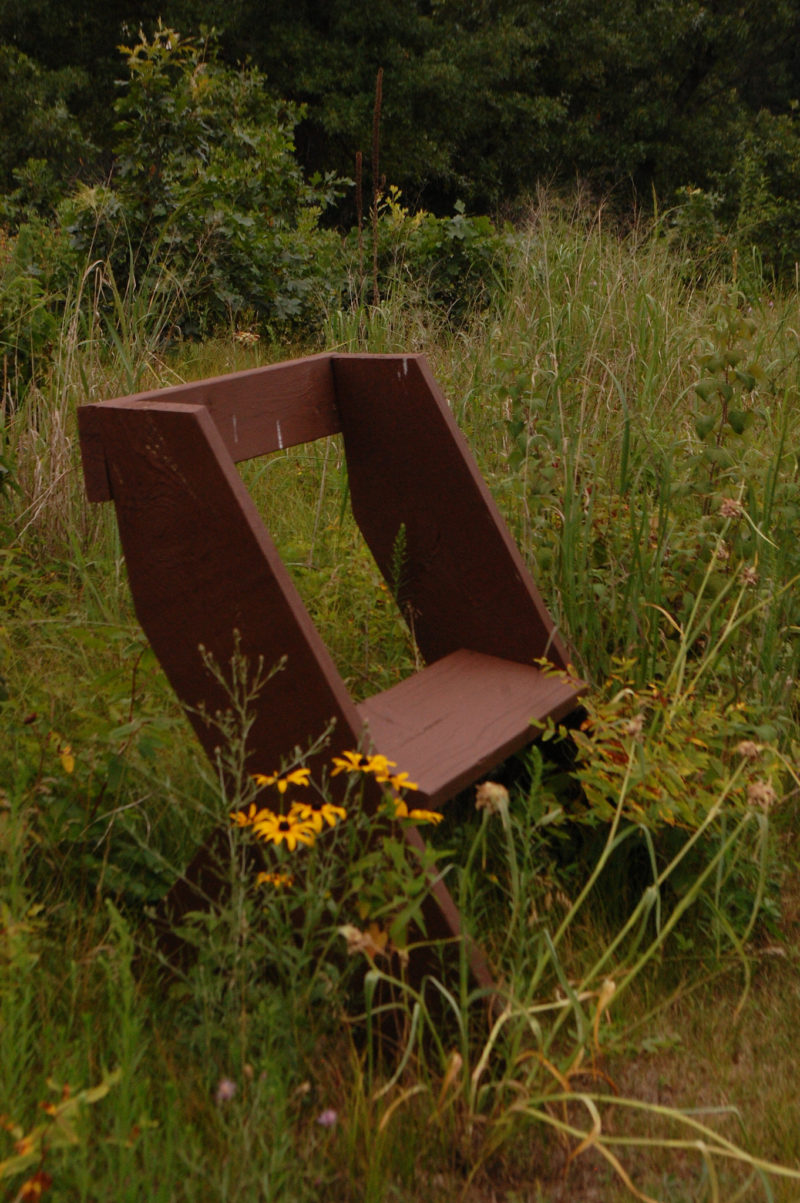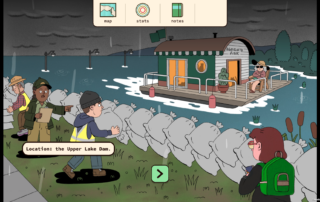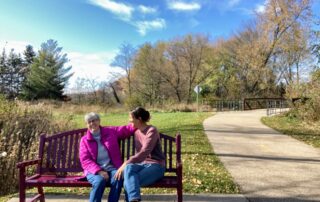I remember my first Wisconsin hike, ten years ago, just after moving here from Pennsylvania’s Pocono Mountains. I stepped from my car at the trailhead for Portage County’s New Hope section of the Ice Age Trail and turned south. Before me stood a mature, mixed-deciduous forest on a short, steep decline, with all its filtered light and the mystery of a hidden valley. It seemed to promise the wild, deep-woods solitude I craved. I set off, anticipating what wild things I might encounter only to find, at the bottom of the hill, a park bench.
What’s this?! I thought. One hundred feet in and already a place to rest? What was a park bench doing along a hiking trail in the middle of the wilderness?
Well, it wasn’t a park bench exactly but a Leopold bench. You know the kind: six two-by-something pieces of scrap wood fastened together with a handful of screws, the sides and legs forming upside down, lower-case y’s, a seat about long enough for two adults, and a single board across the back which may or may not be at an ergonomic angle.
I knew what it was too, even as a fresh Wisconsinite. I had studied environmental education, fallen in love with A Sand County Almanac, and delivered programs at a New Jersey nature center in a classroom filled not with desks, but Leopold benches.
Still, on that first hike in a foreign land, it was the familiarity of wilderness and solitude I wanted, not evidence of things manmade, even something descended from the father of wildlife management.
I would find five more benches along that trail, which became my regular hiking route. I watched one bench lose a leg from decay and disappear in the clover over the next decade, becoming part of the land again, just as Leopold, who used no wood perseverative on his benches, would have had it. Gradually, the remaining benches blended into the forest, no longer disturbing my concept of wilderness. They became to me like muskrat lodges or beaver dams. To an alien from another planet, would the Leopold bench stand out from its surroundings? I wondered. If men are animals, what, really, does it mean to be manmade?
I began to use the middle bench as a place to pour water for my dog. In time, it became my destination. I have read novels there, and written essays, and graded papers. Sitting there, I have been visited—closely—by rose-breasted grosbeaks, hummingbirds, porcupines, deer, and badgers. And curled up on that bench, I have taken surprisingly comfortable naps.
In winter, with most of the bench buried, I sit on the narrow top of the backrest, and let my snowshoes find the seat. And now, I stop at the bench and take my little ten-month-old son out of his carrier, all 22 pounds of him, and sit to rest my aching spine. He stands unsteadily rearwards on the seat and grips the backrest, smiling at the shadow of my hands on the forest floor as I sing and pantomime the itsy bitsy spider. He sticks his tongue out at me and giggles. Then he leans forward, drooling, and into the wood of the backrest he momentarily sinks his little teeth, savoring both the give and the resistance, and with the wood he has nibbled away, moves the Leopold bench one step closer in its return to the land.











